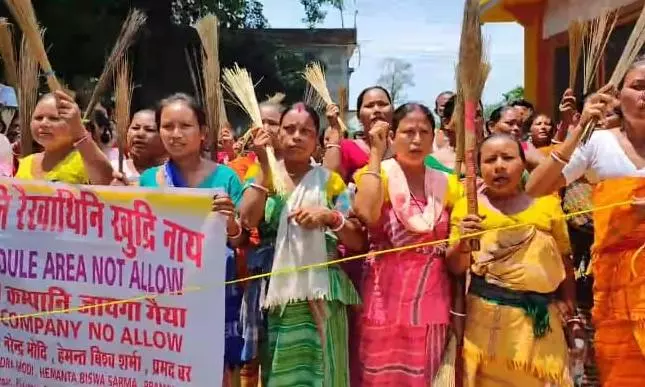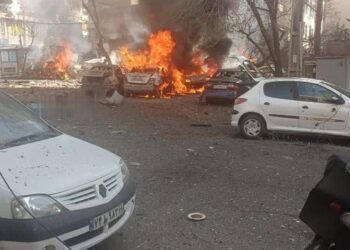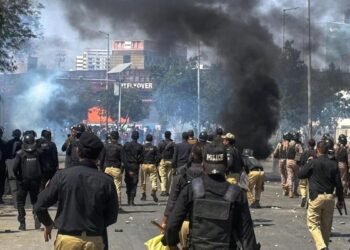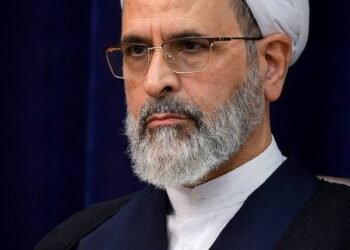Bodo communities rally against the transfer of 480 hectares of forested Sixth Schedule land, accusing officials of bypassing public consent.
PC Bureau
In a strong declaration aimed at quelling growing unrest, Bodoland Territorial Council (BTC) Chief Pramod Boro has asserted that not a single inch of indigenous land will be handed over for Adani Group’s proposed thermal power plant in Assam’s Kokrajhar district. His statement follows widespread protests by Bodo tribal communities and social organisations opposing the proposed land transfer.
Boro’s remarks came during a high-stakes meeting with Adani Group representatives and Assam Power Distribution Company Limited (APDCL) officials, where he insisted on a thorough environmental and social impact assessment before any forward movement on the project. “We will ensure that development does not come at the cost of community rights, dignity, or peace,” he said.
The project, pitched as a major employment generator with a promise of creating up to 10,000 jobs, involves the transfer of over 3,600 bighas (approx. 480 hectares) of land—much of it located in Paglijhora Part-II, under Parbatjhora Forest Division. The area includes over 5 lakh sal and teak trees and is largely classified as mixed plantation forestland. Protesters argue that such land falls under the Sixth Schedule of the Constitution, which protects tribal land rights and prohibits its transfer to private entities without community consent.
What's this in Bodoland Kokrajhar now? Why Adani gets3600 Bigha Bodo land?! pic.twitter.com/MLGsgEtgsU
— Warrior Bikash🇮🇳 (@Bikash63) June 13, 2025
READ: Kuki-Zo, MHA Cover More Ground in Round Two of Peace Talks
Tensions escalated earlier this week when local authorities and Adani officials attempted to demarcate boundaries and initiate eviction activities at the proposed site. Angry residents of Paglijhora resisted, accusing the administration of bypassing public consultation and acting in collusion with private interests.
Daorao Dekrab Narzary, Executive President of the Boroland Jan-Jati Suraksha Manch, called the land allocation “unconstitutional and exploitative,” pointing to the irreversible damage it could cause to the environment and tribal settlements. “This land belongs to our people. If the government continues to push this project without consent, the protests will only intensify,” he warned.
READ: Manipur Mourns: C OCOMI Urges Unity in Receiving Mortal Remains of Air Crash Victims
Environmentalists, civil society groups, and local leaders have also joined the resistance, citing the risk of deforestation, displacement, and depletion of natural resources such as water and clean air. Critics argue that altering land use patterns in such an ecologically and culturally sensitive zone could have long-term consequences.
The proposed plant site lies within the Bodoland Territorial Region (BTR), an autonomous administrative area governed under the Sixth Schedule. This legal framework safeguards tribal lands from external acquisition and commercial exploitation—an argument that protesters say invalidates the government’s agreement with Adani.
READ: Kuki Inpi Warns of Retaliation Over Buffer Zone “Breach”.
As the protests gain momentum, Boro has reiterated that peace in the region will not be compromised. “We welcome development, but not at the expense of our people’s rights or the Constitution,” he said.














